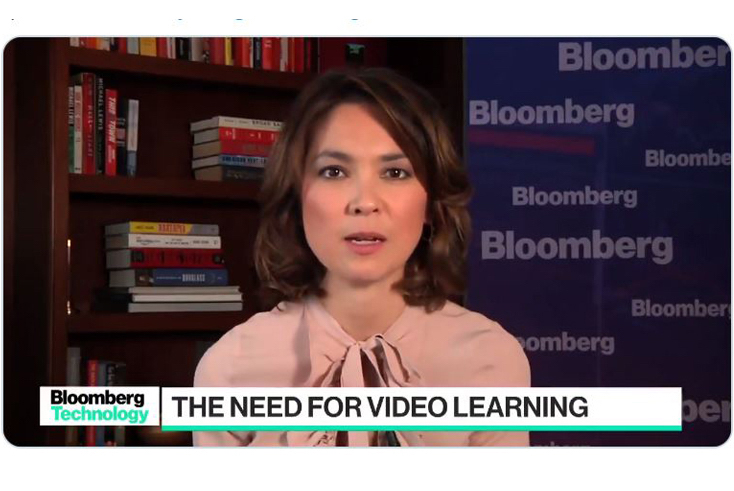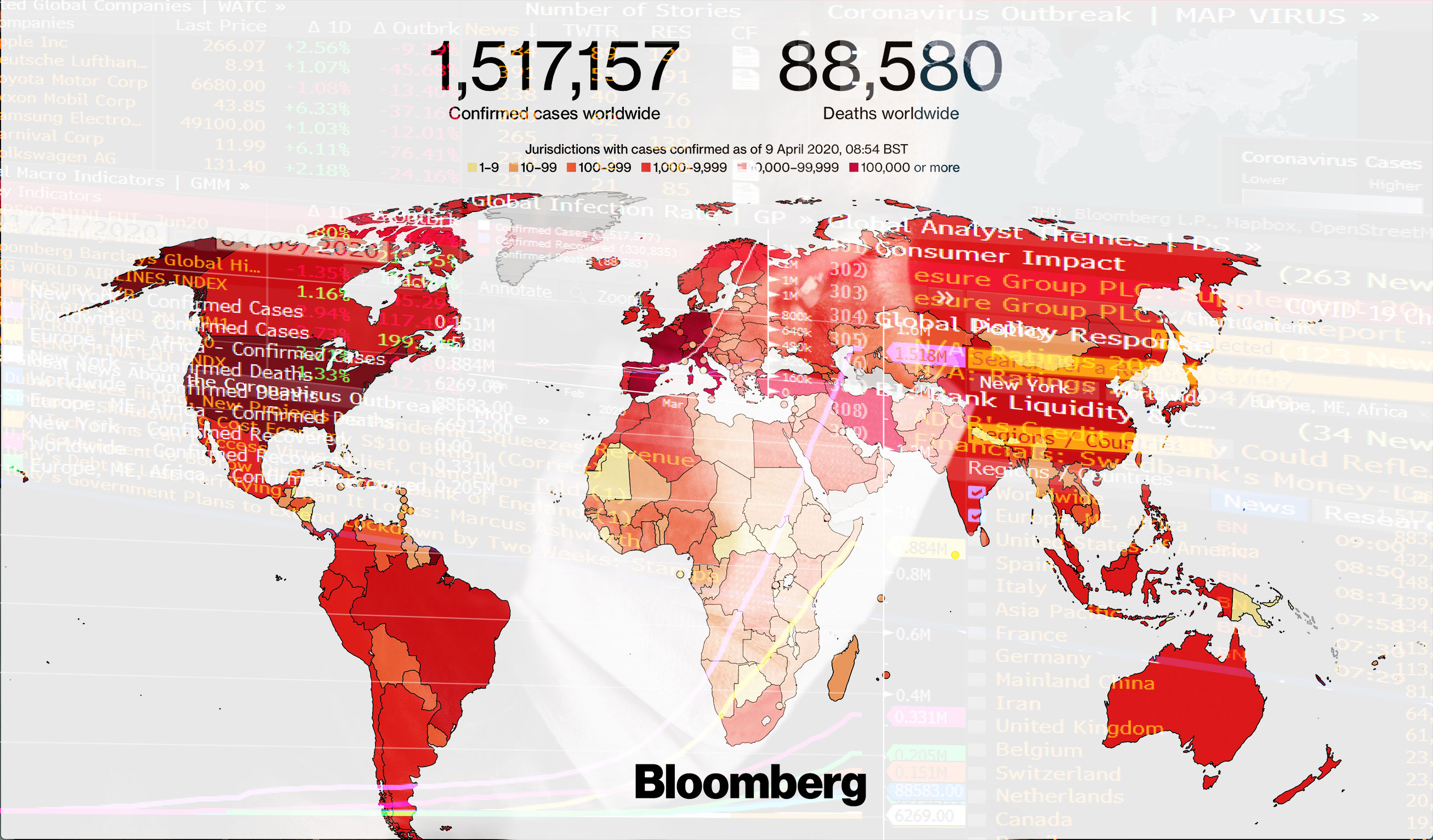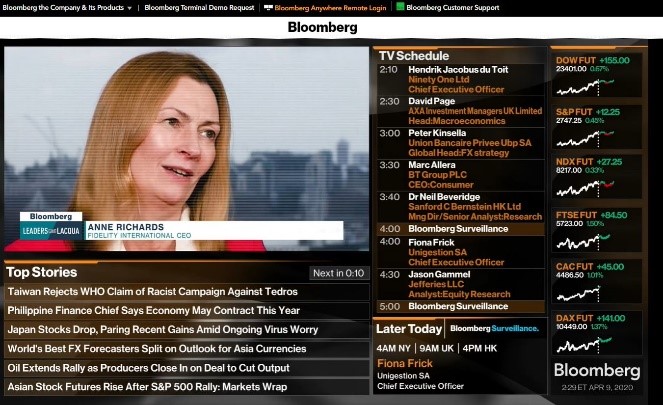Media’s ability to inform and connect has never felt so essential

Partner content
So, it turns out the world is able to completely unravel in less than one fiscal quarter, writes Arif Durrani, and trusted media brands have an influence over what happens next
The year 2020 already felt like a momentous landmark; the dawn of a new decade kick-started by a series of major world events, including the Tokyo 2020 Olympics, UEFA’s Euro 2020, the UK exiting the EU and US Presidential elections.
New Year’s Eve celebrations were infused with romantic thoughts of the last Roaring Twenties—a period of social rebirth, artistic expression, bootleg alcohol and economic dynamism. Little did we know an alert sent from China to the World Health Organisation that same day, detailing instances of “pneumonia of unknown cause” in the city of Wuhan, was going to reshape everything.
Fast-forward three months, and any hopes of an F. Scott Fitzgerald-inspired decade of decadence already feel like a distant pipedream. The International Monetary Fund’s chief economist Gita Gopinath called the “Great Lockdown recession” a crisis “like no other”, in a Bloomberg TV interview this week, and warned of the deepest drop in global GDP since The Great Depression.
The culprit itself, at approximately 90 nanometres long, is unimaginably small. The coronaviruses (Covid-19) are tiny packets of protein — not exactly live but not exactly dead. As Tom Whipple, science editor at The Times notes, if you laid 1,000 coronaviruses end to end they would only span a human hair. If you packed a couple of trillion together, they would fill a pinhead.
Unprecedented coverage
Every crisis brings its own language, and during the Covid-19 outbreak we’ve quickly become accustomed to the new lexicon of “self-isolating”, “social distancing” and “flattening the curve”. Collectively, through some unspoken universal agreement, it seems we must refer to this pandemic at all times as “unprecedented”. While it’s true much about the scale and impact of Covid-19 is unique, it’s not beyond compare.
We had the more deadly but less contagious Ebola epidemic in 2014-2015, the previous coronavirus known as SARS in 2002-2004, and the H1N1 influenza in 2009, to name but a few.
History tells us that in times like these, knowledge holds the key to survival and revival.
Lessons from the most devastating pandemic in human history
Staying with lessons from history, helping my son with his homework (a new teaching role many of us are now grappling with since the schools closed), I’m reminded about how the Black Death (partly bubonic plague) wiped out up to half the population of Europe in the 14th century. In the absence of trustworthy, reliable news sources back then, misinformation was rife – resulting in pointless remedies like rubbing onions and dead pigeons on yourself.
Amazingly, forms of the bubonic plague continue to reappear more than 600 years later, and Danny Meadows Klue, CEO of Digital Strategy Consulting group, experienced the panic it can induce first hand as a teenager in the city of Surat, the village of patient zero during India’s epidemic in 1994. He laments the lack of reliable information and recalls how it led to a run on the drugs treating the outbreak and let profiteers move in.
“Like any civil crisis it was challenging, but what was different then was the lack of information; the painful speed of analogue newspaper delivery, and the few snatches of certainty through BBC World Service radio,” says Klue. “The key thing was the scarcity of information, and the fear that bred; fear leads to rumours and that’s how society goes off the rails.”
He adds: “When it emerged tetracycline was the treatment, millions tried to take it incorrectly, which used up the spare capacity in the system. And that shortage led to a black market in placebos being sold as an antibiotic.”
The ability to inform
We’ve come a long way since then. Today, trusted media brands are helping the world make sense of the novel coronavirus pandemic in real-time. Covid-19 is a life and death story that has been the most chronicled disease outbreak in history.
At Bloomberg, our newsroom has been working around the clock to publish the most comprehensive, real-time coverage of the crisis as it unfolds. We’ve been analysing every aspect of the pandemic to provide news, insights and trends from a global perspective.

Output ranges from dynamic mapping and data visualisations to in depth features on expert medical advice and updates on market sentiment as policy makers deploy trillions of dollars of stimulus and 30 central banks announce rate cuts.
Such prolific coverage resulted in new subscriptions to Bloomberg Media rising 86% in March.
Meanwhile, Bloomberg TV and Radio journalists (pictured Emily Chang, anchor and executive producer of Bloomberg Technology) continue to interview business leaders from around the world and provide market updates, using a mix of controlled studio conditions, home broadcasts and plenty of external live feeds.
Bloomberg TV viewership has jumped 35% year on year, and rising, as people try to figure out the long-term impact of the coronavirus on business. While Bloomberg Radio has been harnessing the intimacy of the medium to interview embattled SME owners in major markets, humanising the business stories behind the pandemic.

Our events team, Bloomberg Live, has been quick to adapt to the new reality too, creating packages of virtual opportunities that allow leaders to continue to exchange ideas and share expertise. Webcam and broadcast video technology is enabling briefings, roundtables and even full day events to take place.
Stronger together

To produce all of this while under lockdown has been no small feat, but a shared sense of purpose has taken hold. Timely research from Havas Media tracking changes in user behaviour since the Covid-19 outbreak identify the two biggest drivers for media consumption right now as information (with 76% of respondents saying it has become more valuable to them since the lock downs), and a demand for greater connection (with 48% confirming this has become more important).
Bloomberg is among a number of global media brands providing both reliable information and greater connection. And it needs to be, as misinformation swirls around social media linking the coronavirus to 5G networks, among other baseless claims, while some individuals in feuding countries try and link the outbreak to each another.
Fellow members of the World Media Group have talked about “at least double-digit spikes in traffic” as people increasingly turn to trusted, global news sources and quality journalism. The Washington Post published its most read article in its 142 year history with Harry Steven’s brilliant explainer on, and simulations of, social distancing in the early days of the crisis. The feature has been published in 18 languages and been viewed by “tens of millions” of people.
As with much Covid-19 content right now, it was lifted from behind the Post’s paywall and made freely available to all. Similarly, The Financial Times has lifted sections of its paywall as part of its #FTfreetoread initiative and reported traffic increase of 250% year on year in March. The news brand launched a coronavirus business update email on March 11 that has already attracted more than 70,000 subscribers.
This flight to reliable, curated news media is playing out at a national level too, with site visits to quality UK news brands The Guardian, Daily Telegraph and The Times reportedly up between 30%-60%. Meanwhile, all major broadcasters are seeing news audiences spike.
News viewership on YouTube, produced by the major news brands, has soared 75% in recent weeks from the same time last year, with millions more people turning to the video site for updates on the coronavirus, chief product officer Neal Mohan told Bloomberg Television. And the Google company is increasingly being drawn into the editing responsibilities of major broadcasters, admitting it has had to confront misleading and outright false videos as the virus spread. It reports having removed “thousands” of videos for violating policies on disinformation related to the virus.
In recognition of just how vital reliable reporting is as the coronavirus reaches more than 200 countries, the National Geographic Society has created an emergency fund for writers, photographers, videographers, audio journalists, cartographers, film-makers, and data visualisation experts covering the pandemic. It is offering support ranging from $1,000-$8,000 for evidence-based reporting in less supported areas.
It’s undoubtedly a challenging time for everyone, but together we’re stronger, better informed and more connected.
Arif Durrani is executive editor at Bloomberg Media Studios, EMEA



